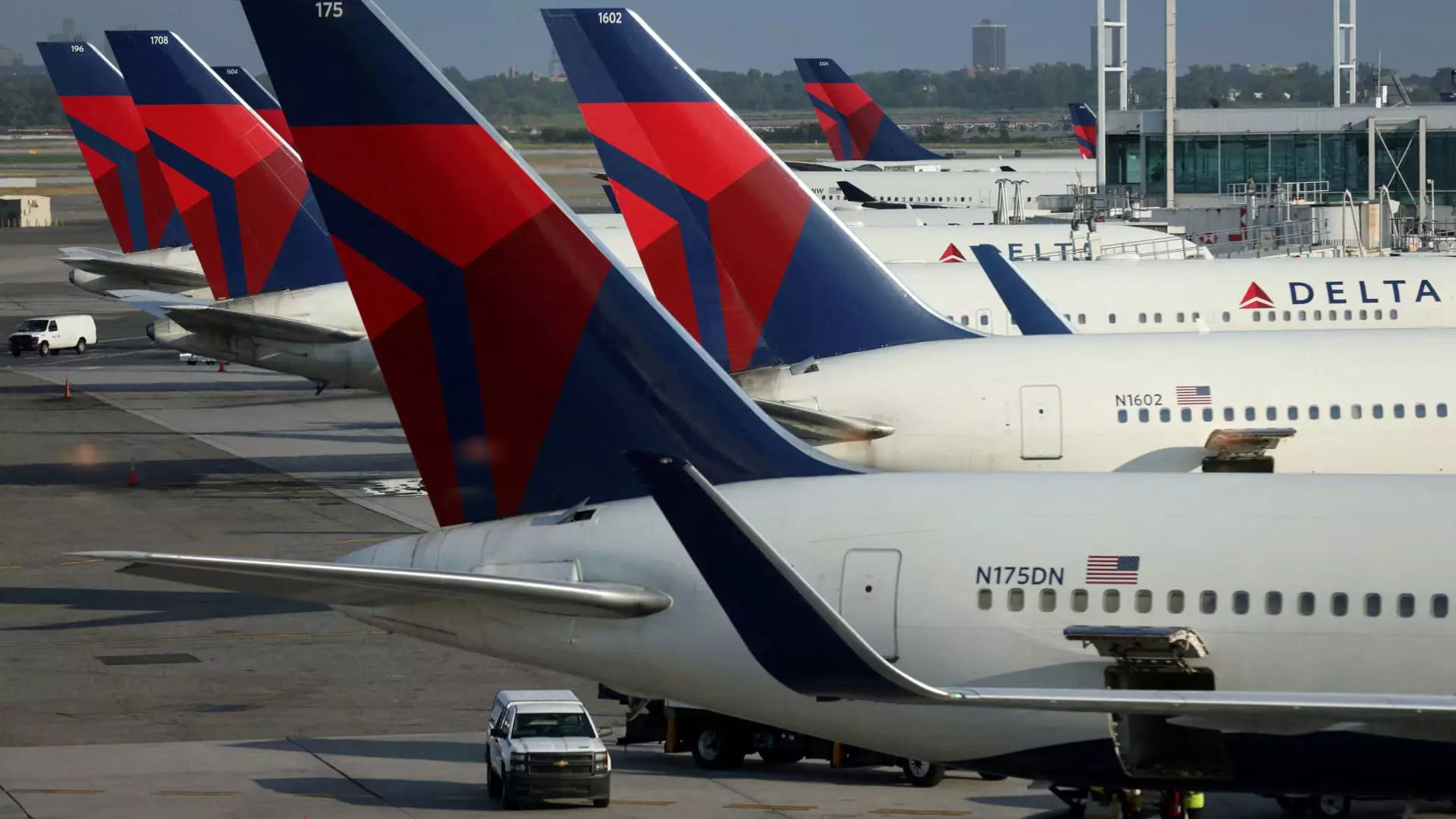In a recent legal development, Delta Air Lines has initiated a lawsuit against cybersecurity firm CrowdStrike, stemming from a significant software outage that occurred in July. The incident caused major disruptions for Delta, leading to the cancellation of approximately 7,000 flights and a staggering loss of around $380 million in revenue. This situation highlights the vulnerabilities inherent in the increasingly digital nature of the airline industry, where a single software error can trigger cascading effects on operations and finances.
Delta’s grievance is rooted in their allegation that CrowdStrike breached their contractual agreement and acted negligently. The lawsuit indicates that a faulty software update adversely impacted Delta’s operations, primarily due to issues affecting systems operating on Microsoft’s Windows. This raises critical questions about the roles and responsibilities that tech companies have in safeguarding the operations of their clients.
The Aftermath: Financial Implications and Reactions
Delta’s claim of $170 million in additional costs further underscores the financial ramifications of such technological failures. The lawsuit draws attention to the broader implications for businesses that rely on third-party software vendors. The airline’s choice to enlist the legal team of David Boies signifies the seriousness with which it intends to approach this situation. This attorney is well-known for his involvement in high-profile cases, which suggests that Delta may seek not just compensation but also accountability from CrowdStrike and possibly Microsoft as well.
The incident offers a sobering glimpse into the potential risks inherent in the modern reliance on digital solutions. Delta’s assertion that if CrowdStrike had executed proper testing on their software, the outage could have been avoided, not only illuminates lapses in quality control but also raises concerns about trust in cybersecurity measures. Delta’s operational decision to disable automatic updates—only to have a problematic update bypass those measures—demonstrates the precarious balance between automation and manual oversight.
Industry Responses and Future Implications
In the wake of Delta’s accusations, CEO Ed Bastian’s claim that the “havoc created deserves full compensation” indicates a strong sentiment that stakeholders must hold software developers responsible for the impact their products have on critical infrastructure. Furthermore, CrowdStrike’s CEO George Kurtz has publicly acknowledged the issue and promised changes to prevent future occurrences, which signals a realization within the cybersecurity realm regarding the potential consequences of their software on significant operations.
The repercussions of this incident extend beyond Delta and CrowdStrike; the airline industry must brace itself for potential regulatory scrutiny regarding data handling and software certification processes. In an era where technological dependency is rapidly expanding, businesses are increasingly recognizing the imperative of rigorous software testing and quality assurance.
As the case unfolds, it will be critical to monitor how not just Delta, but the airline industry as a whole recalibrates its strategies regarding software partnerships and risk management. The courtroom could serve as a pivotal venue for challenging existing norms in tech-vendor contracts and accountability, ultimately fostering an environment where safety and reliability are paramount.


Leave a Reply
You must be logged in to post a comment.